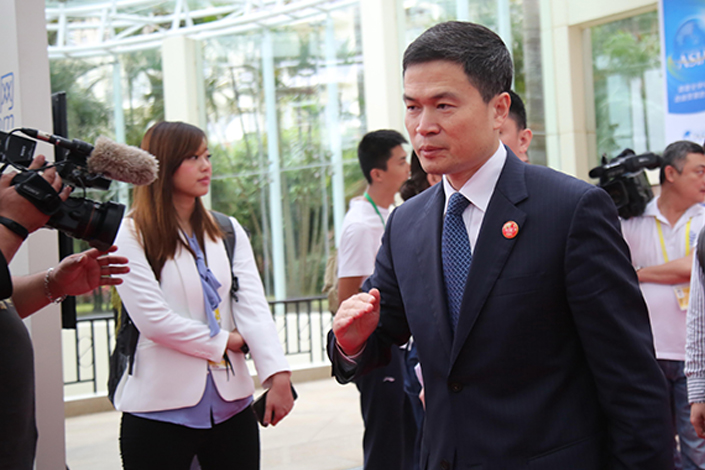China Plans to Launch Shanghai Crude Oil Futures This Year

(Beijing) — China is planning to launch crude oil futures in Shanghai in 2017 — a major step that analysts say will attract international investors and give the country global pricing power.
Chinese securities regulators are confident that the launch of crude oil futures will happen this year, said Fang Xinghai, vice chairman of the China Securities Regulatory Commission (CSRC), which is in charge of the futures market, while speaking to Caixin reporters Wednesday.
China has been gearing up to establish a crude oil futures market for several years. Significant progress in terms of setting up trading facilities and rules was made in 2015. But a stock market crash that summer that led to a 40% slump in the benchmark Shanghai Composite Index over two months delayed the process.
Jiang Yan, CEO of the Shanghai Futures Exchange, told Caixin on Wednesday that rules such as those for trading crude oil futures contracts are under review and awaiting final regulatory approval.
People close to the CSRC told Caixin that after consulting with government agencies, including the National Development and Reform Commission (NDRC), China’s top economic planner, and the State Administration of Foreign Exchange (SAFE), the basic policy framework is in place, and there is no need to rewrite all the rules.
Analysts suggested that the introduction of trading in crude oil futures is a major step forward for both the energy and financial sectors, and that it will play a significant role in helping China, the world’s largest importer of crude oil, to open up its futures market to the world and give it global pricing power for the commodity.
West Texas Intermediate (WTI) on the New York Mercantile Exchange and Brent on the London-based ICE Futures Europe are the two global benchmarks commonly used to determine oil prices.
“When the crude oil futures contract is launched at the Shanghai Futures Exchange, Shanghai is likely to become a global hub to trade and price crude oil,” which will largely help Chinese companies better allocate world resources and hedge against market risks, Fang said.
Contact reporter Dong Tongjian (tongjiandong@caixin.com)

- 1China Officials Dismiss Tax Hike Rumors After Tech Selloff
- 2Cover Story: How Gutter Oil Became a Prized Fuel for International Airlines
- 3Prominent Chinese Journalist Liu Hu Detained by Police in Chengdu
- 4Maersk Unit Takes Over CK Hutchison Panama Ports After Court Ruling
- 5China Provinces Set Cautious 2026 Growth Targets
- 1Power To The People: Pintec Serves A Booming Consumer Class
- 2Largest hotel group in Europe accepts UnionPay
- 3UnionPay mobile QuickPass debuts in Hong Kong
- 4UnionPay International launches premium catering privilege U Dining Collection
- 5UnionPay International’s U Plan has covered over 1600 stores overseas




